12 Stirring Books About Inequality and Discrimination
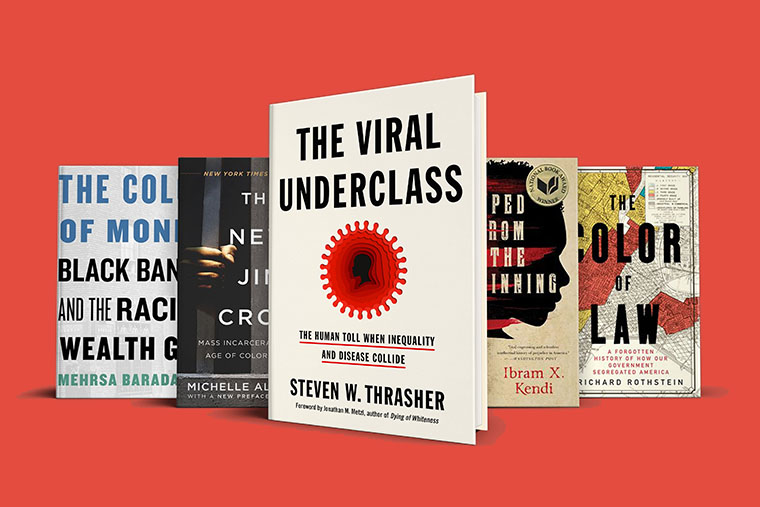
These eye-opening reads are more necessary than ever.
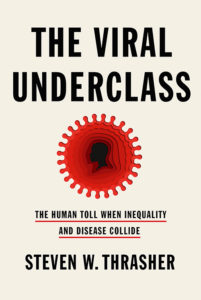
The Viral Underclass: The Human Toll When Inequality and Disease Collide
By Steven W. Thrasher
In The Viral Underclass, acclaimed social critic and LGBTQ scholar Dr. Steven W. Thrasher draws on his years of studying the racialization and policing of HIV to present a thought-provoking book about inequality and the spread of diseases. When a virus hits, who among us is privileged enough to survive? Who ends up suffering the worst of the outbreak? Thrasher argues that societal constructs and inequality play a critical role in the spread of disease, intensifying the virus’s impact on society’s most vulnerable. Far from a theoretical exercise, The Viral Underclass explores this topic through the lived experiences and moving accounts of everyday Americans, revealing the struggle so many of our neighbors face as they grapple with the twin scourges of discrimination and disease.
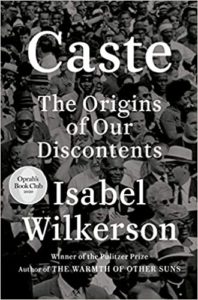
Caste: The Origins of Our Discontents
By Isabel Wilkerson
In her New York Times bestseller Caste, Pulitzer Prize winner Isabel Wilkerson reframes the way we see inequality in America. Wilkerson contends that we must look beyond individual factors like race and class to examine the rigid social hierarchies that have existed in America for decades, hierarchies that influence the trajectory of the nation and control the lives of its citizens. The author presents a fascinating examination of caste systems throughout history, identifying the pillars that undergird such orders and drawing parallels between America and India’s caste system as well as Nazi Germany’s inelastic ranking of human life.
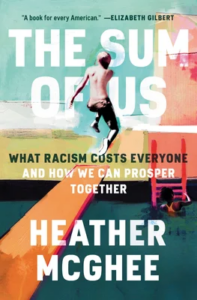
The Sum of Us: What Racism Costs Everyone and How We Can Prosper Together
By Heather McGhee
In her award-winning The Sum of Us, social policy expert Heather McGhee movingly documents her journey across America’s divided racial landscape, delivering big-picture social commentary as she illuminates the root cause of the country’s dysfunction. McGhee examines racism as an insidious issue that impacts every American, undercutting our collective strength as it spreads the lose-lose strategy that success must come at the expense of someone else. Drawing on her personal conversations with folks from Mississippi to Maine, McGhee illustrates just how much we lose by turning our backs on one another — and how much we stand to gain by joining together in the fight for a more equitable society.
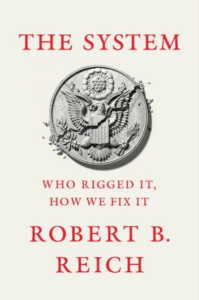
The System: Who Rigged It, How We Fix It
By Robert Reich
Robert Reich’s The System is a must-read for anybody interested in politics and power in present-day America or who has ever questioned the myth of meritocracy in American society. In the book, Reich explores how wealth and power have taken precedence over fairness and equality, and how many of the claims of America’s current system of governance — from free market impartiality and the wisdom of the political center to earnest corporate social responsibility — are ploys meant to sow division and consolidate power among the country’s ruling class. Not only does Reich vividly illustrate how and why our system is broken, he also presents suggestions on how we can root out the rot and refashion American democracy into a system that benefits all of its citizens.
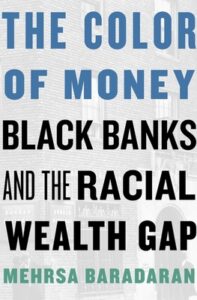
The Color of Money: Black Banks and the Racial Wealth Gap
By Mehrsa Baradaran
In The Color of Money, Mehrsa Baradaran delivers a fascinating breakdown of the racial wealth gap in America and why it persists to this day. Baradaran trains her attention on Black banks, which she argues were never equipped to produce prosperity in a deeply segregated economy. As a result, Black communities and the community institutions designed to promote financial growth and independence succumbed to a cycle of poverty. Baradaran vividly chronicles the real-world impact of longstanding discriminatory economic policies, exposing the system’s biases and laying out the fundamental reforms necessary to redress the disparity.
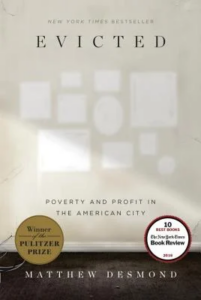
Evicted: Poverty and Profit in the American City
By Matthew Desmond
Matthew Desmond’s Evicted is a bestselling book about inequality and discrimination, and it’s a celebrated narrative that’s won multiple awards, including the National Book Critics Circle Award for Nonfiction and a Pulitzer Prize. The book offers a startling and emotional examination of poverty in America and the history of economic disparity in our country. Desmond frames his critique of American prosperity and penury through the lives of eight Milwaukee families, each struggling to keep food on the table and a roof over their heads as they navigate the country’s perilous housing market.
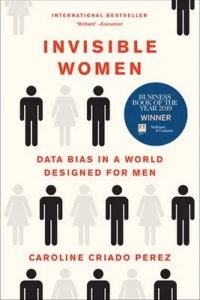
Invisible Women: Data Bias in a World Designed for Men
By Caroline Criado Perez
In her international bestseller Invisible Women, Caroline Criado Perez offers a captivating new lens through which to view gender inequality. The author dives deep into the data disparities present in health care, education, home life, and the workplace, crunching numbers to reveal that so much of the world leans male because we fail to take gender into account when collecting and deciphering data. The imbalance creates a self-perpetuating bias loop that impacts every facet of society, forcing women everywhere to offset the cost with their time, their money, and their health.

Nickel and Dimed: On (Not) Getting By in America
By Barbara Ehrenreich
Barbara Ehrenreich goes undercover in her classic exposé Nickel and Dimed, working a variety of low-paying jobs to reveal the true cost of living paycheck to paycheck in America. Ehrenreich’s investigation sees her crisscrossing the country from Florida to Minnesota in search of an honest living wage. Along the way, she works long hours as a nursing home aide, a waitress, and a Wal-Mart sales clerk, struggling to stay afloat in shabby residential motels and fast-food restaurants. Ehrenreich’s efforts reveal hard truths about the mental and physical exhaustion that workers experience, exposing America’s familiar adage of “pull yourself up by your bootstraps” as out-of-touch and the reality that most members of America’s labor force hold multiple jobs just to make ends meet.
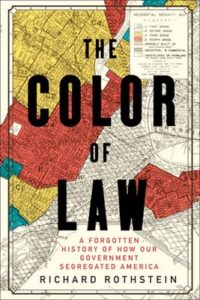
The Color of Law: A Forgotten History of How Our Government Segregated America
By Richard Rothstein
Richard Rothstein’s The Color of Law is a groundbreaking work on entrenched discrimination in America that’s earned acclaim from critics and readers alike. The New York Times bestseller offers a fascinating and disturbing look into the ways government officials throughout history have reinforced segregation in American cities, disproving claims of de facto separation to reveal that the street-by-street division we see across the country is the direct result of laws and policy. Rothstein touches on issues such as public housing, federal building subsidies, and racial zoning during the Great Migration of the early 20th century in his eye-opening work, tracing the discriminatory practices of the past and their cascading impact on the present.
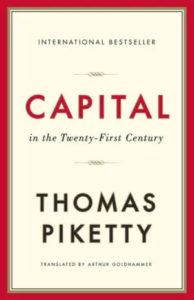
Capital in the Twenty-First Century
By Thomas Piketty
Though it was originally published in 2014, Thomas Piketty’s Capital in the Twenty-First Century remains powerfully relevant today. The bestselling narrative examines the accumulation and distribution of wealth, with a focus on why inequality endures despite advancements in society. Piketty uses data from 20 different countries to reveal the root cause of inequality, taking readers from the 18th century through the modern era to illustrate how we reached our current moment of economic discontent. He doesn’t just leave us there, though. He outlines the action necessary to rein in inequality and tackle the runaway accretion of capital.
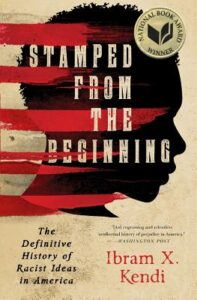
Stamped from the Beginning: The Definitive History of Racist Ideas in America
By Ibram X. Kendi
In his National Book Award winner Stamped from the Beginning, acclaimed author Ibram X. Kendi delivers a searing examination of discrimination in America and the propagation of racist thinking throughout the country’s history. Kendi traces the development of anti-Black ideology through the lives and attitudes of five American intellectuals: Puritan clergyman and writer Cotton Mather, Thomas Jefferson, abolitionist William Lloyd Garrison, W.E.B. Du Bois, and activist Angela Davis. Kendi proposes that racism does not necessarily stem from the hatred of another based on the color of their skin but is rather a means of justifying discriminatory policies and explaining America’s own fractured racial identity.
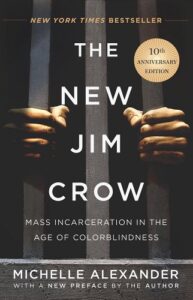
The New Jim Crow: Mass Incarceration in the Age of Colorblindness
By Michelle Alexander
Michelle Alexander’s The New Jim Crow was originally published in 2010 during Barack Obama’s first term as president, challenging the notion that we had entered a new era of equality and racial justice. More than a decade later, Alexander’s award-winning work on entrenched racist policies and the staggering disparities in America’s criminal justice system is as necessary as ever. This special 10th-anniversary edition includes a new preface by the author, where she discusses her book’s wide-reaching impact and developments in the criminal justice reform movement.
Share with your friends
Related Articles
Celadon delivered
Subscribe to get articles about writing, adding to your TBR pile, and simply content we feel is worth sharing. And yes, also sign up to be the first to hear about giveaways, our acquisitions, and exclusives!
Newsletter
"*" indicates required fields


